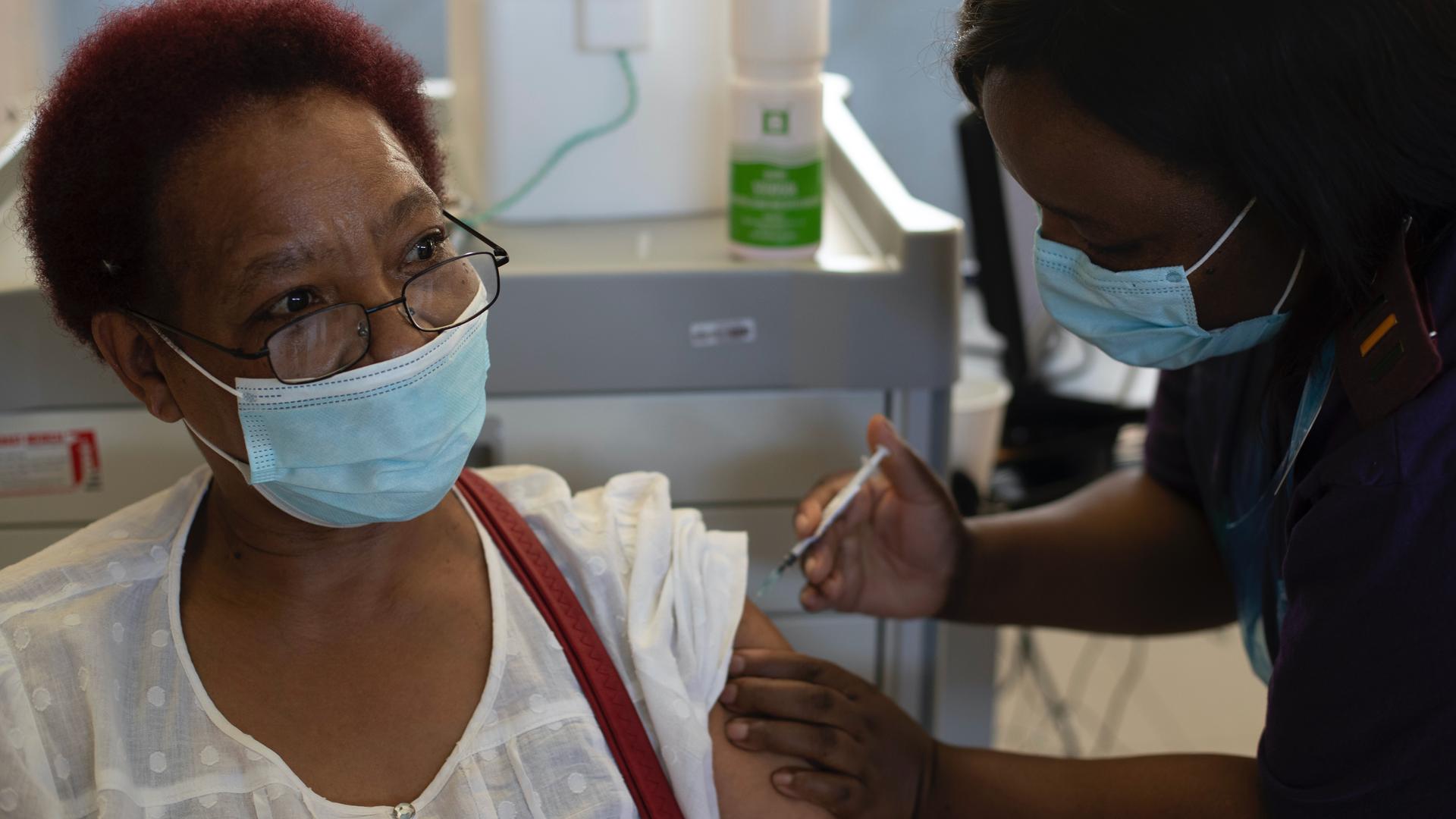South Africa boosts Africa’s COVID-19 vaccine supply with local manufacturing
This week, South Africa resumed its rollout of Johnson & Johnson’s COVID-19 vaccine to health workers across the country.
The country had suspended the vaccine earlier this month over concerns of rare blood clots in the US.
South Africa, unlike the US, could not afford to indefinitely suspend its only current vaccine available, especially in light of an overall global shortage of shots, and a third wave of the coronavirus on the horizon.
Related: South Africa changes course on vaccine rollout after disappointing study
Fortunately, South Africa’s resumption of COVID-19 vaccinations has coincided with an extra 1.1 million vaccine doses that were produced locally by South African company Aspen Pharmacare.
“What we signed was a technology transfer and manufacturing deal that will enable us to contract manufacturing for, and on behalf of, Johnson & Johnson.”
“What we signed was a technology transfer and manufacturing deal that will enable us to contract manufacturing for, and on behalf of, Johnson & Johnson,” said Stavros Nicolaou, a senior executive responsible for strategic trade development at Aspen Pharmacare.
The first batch of vaccines left a facility in Gqeberha this week to be distributed across South Africa, but manufacturing began thousands of miles away.
“The first step is, this active substance gets produced overseas. It gets shipped to South Africa to Aspen. Aspen then thaws the active substance and places [it] into formulation or compounding,” Nicolaou explained.
Related: Norway’s minister calls on others to follow his country’s lead in sharing COVID-19 vaccines
Compounding is when the active pharmaceutical ingredient (API) of the vaccine is mixed with other liquids and filler ingredients.
Then, Aspen fills doses of the vaccine liquid into sterilized vials, and packages them for delivery — a process often referred to as “finish and fill.”
While Aspen Pharmacare hadn’t set out to manufacture vaccines, the pandemic arose at the same time as a targeted investment in their sterile facilities — which are paramount for manufacturing vaccines.
“We realized that we could allocate part of our sterile capacity. With some minor tweaking and refinement, we could enter the vaccine space.”
“We realized that we could allocate part of our sterile capacity. With some minor tweaking and refinement, we could enter the vaccine space,” Nicolaou said.
The result, he said, is the capacity to produce more than 200 million doses of the Johnson & Johnson vaccine annually. Half of all doses produced are promised to go to the African Union, and 31 million doses will go to South Africa alone.
It’s a big boost for a continent that’s been facing a devastating shortage of COVID-19 vaccines, as rich countries hoard their doses. The shortage has been a wake-up call for African countries to seriously invest in local medical manufacturing.
Dr. Janet Byaruhanga of the African Union Development Agency said that 80%-90% percent of the medicines used on the continent are imported — mainly from India, China and parts of Europe.
Despite a decade-long plan to boost African manufacturing, most countries there continue to rely on imports. When it comes to vaccines, many remain dependent on donations from the UN.
Byaruhanga estimates only about 1% of the vaccines used in Africa are produced locally.
Amid global vaccine inequity, there have been growing calls for the Word Trade Organization to waive the Trade-Related Aspects of Intellectual Property (TRIPS) rules in order to help spur vaccine manufacturing in other parts of the world.
In an interview with The World this month, WTO Director-General Ngozi Okonjo-Iweala said, “On the TRIPS Agreement issue and intellectual property, we really need both sides to sit down and come to a practical and pragmatic agreement to continue to move the needle.”
Byaruhanga said the core problem is a lack of country-level and regional policies that incentivize local manufacturing, and enable them to compete in a competitive industry.
She said that there needs to be agreement “to preferentially procure from the manufactures that are within our continent, so that we can give them a guarantee that they need to grow.”
Still, technology transfer could make an immediate difference in increasing vaccine production capacity, said Patrick Tippoo of the African Vaccine Manufacturing Initiative.
“This allows you to partner with a mature vaccine manufacturer who’s been there and done that. And it’s the fastest way you, as an African vaccine-manufacturing company, can scale up.”
“This allows you to partner with a mature vaccine manufacturer who’s been there and done that. And it’s the fastest way you, as an African vaccine-manufacturing company, can scale up,” he said.
For example, few of the estimated 10 vaccine manufacturing companies in Africa produce the active pharmaceutical ingredient (API); most are finish-and-fill operations.
Related: South Africans anxious over pause in use of J&J vaccines
Technology transfer could help increase their capacity to produce vaccines from start to finish, which, according to Tippoo, is essential.
“It’s important for national security and health security purposes. As demonstrated by our current experience with COVID-19. We are in a situation now where we are totally reliant on external supply,” Tippoo said.
Tippoo added that with mutually beneficial investment, several African companies can expand their capacity to produce API.
For example, last month the South African company Biovac, which Tippoo works for, announced a partnership with American company ImmunityBio to test and eventually manufacture new COVID-19 vaccines in South Africa from start to finish.
Correction: An earlier version of this story misspelled the name, Stavros Nicolaou.
Our coverage reaches millions each week, but only a small fraction of listeners contribute to sustain our program. We still need 224 more people to donate $100 or $10/monthly to unlock our $67,000 match. Will you help us get there today?
